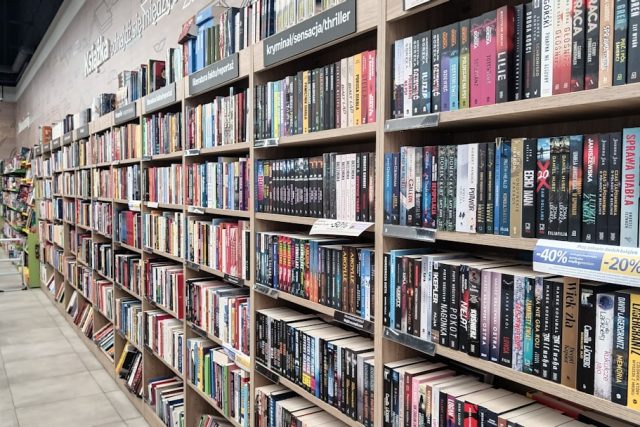Fiction has an unparalleled ability to transport readers into worlds crafted from the imagination, where characters come alive and stories unfold in ways that resonate with our own experiences. Among the myriad of fiction works, some stand out as favorites for their compelling narratives and rich character development. One such favorite is “The Night Circus” by Erin Morgenstern, a mesmerizing tale that weaves together magic, competition, and romance within the confines of a mysterious circus that appears only at night.
The novel’s lush descriptions and intricate plot structure invite readers to lose themselves in a world where reality blurs with fantasy, making it a quintessential example of how fiction can evoke deep emotional responses. The characters, particularly Celia and Marco, are not just participants in a magical duel; they embody the complexities of love and sacrifice, drawing readers into their enchanting yet perilous journey. Another beloved work of fiction is “The Great Gatsby” by F.
Scott Fitzgerald, a timeless exploration of the American Dream and its discontents. Set against the backdrop of the Roaring Twenties, Fitzgerald’s novel delves into themes of wealth, class, and the pursuit of happiness through the tragic figure of Jay Gatsby. The narrative is rich with symbolism, from the green light at the end of Daisy’s dock to the eyes of Dr.
T.J. Eckleburg watching over the desolate landscape of the Valley of Ashes. Fitzgerald’s lyrical prose captures the essence of an era marked by excess and disillusionment, making it a poignant reflection on human aspirations and failures.
The interplay between illusion and reality in Gatsby’s life serves as a cautionary tale about the hollowness that often accompanies material success, ensuring its place as a staple in the canon of American literature.
Key Takeaways
- Fiction Favorites:
- “The Great Gatsby” by F. Scott Fitzgerald is a timeless classic that explores the decadence and disillusionment of the American Dream.
- Non-Fiction Gems:
- “Sapiens: A Brief History of Humankind” by Yuval Noah Harari offers a thought-provoking look at the history of our species and the forces that have shaped our society.
- Thrilling Page-Turners:
- “Gone Girl” by Gillian Flynn is a gripping psychological thriller that will keep you on the edge of your seat until the very end.
- Classic Literature Picks:
- “To Kill a Mockingbird” by Harper Lee is a powerful and poignant exploration of racial injustice and moral growth in the American South.
- Contemporary Bestsellers:
- “Where the Crawdads Sing” by Delia Owens is a beautifully written novel that combines mystery, romance, and coming-of-age themes in the marshes of North Carolina.
- Inspirational Reads:
- “The Alchemist” by Paulo Coelho is a timeless tale of self-discovery and following one’s dreams, with a message that resonates with readers of all ages.
- Travel and Adventure Tales:
- “Wild” by Cheryl Strayed is a captivating memoir of self-discovery and healing as the author embarks on a solo hike along the Pacific Crest Trail.
- Thought-Provoking Memoirs:
- “Educated” by Tara Westover is a powerful memoir that chronicles the author’s journey from a survivalist family in rural Idaho to earning a PhD from Cambridge University.
Non-Fiction Gems
Non-fiction literature offers a treasure trove of knowledge, insights, and real-life stories that can inspire and educate readers. One standout gem in this genre is “Sapiens: A Brief History of Humankind” by Yuval Noah Harari. This thought-provoking book takes readers on a sweeping journey through the history of our species, from the emergence of Homo sapiens to the present day.
Harari’s ability to distill complex historical events into accessible narratives allows readers to grasp the profound impact of cultural, economic, and technological developments on human society. By examining pivotal moments such as the Agricultural Revolution and the Scientific Revolution, Harari challenges conventional wisdom and encourages readers to reflect on what it means to be human in an ever-evolving world. Another remarkable non-fiction work is “Educated” by Tara Westover, a memoir that chronicles the author’s journey from growing up in a strict and isolated household in rural Idaho to earning a PhD from Cambridge University.
Westover’s story is not just about education; it is a powerful testament to resilience and the transformative power of knowledge. Her experiences highlight the stark contrasts between her upbringing—characterized by survivalist beliefs and a lack of formal schooling—and her eventual pursuit of higher education. Through her narrative, Westover explores themes of identity, family loyalty, and the struggle for self-discovery, making “Educated” a compelling read that resonates with anyone who has faced obstacles in their quest for personal growth.
Thrilling Page-Turners

For those who crave excitement and suspense, thrilling page-turners provide an exhilarating escape into worlds filled with intrigue and danger. One such gripping novel is “Gone Girl” by Gillian Flynn, which masterfully blends psychological suspense with a biting commentary on marriage and media culture. The story revolves around Nick and Amy Dunne, whose seemingly perfect marriage unravels when Amy goes missing on their fifth wedding anniversary.
Flynn’s skillful use of unreliable narration keeps readers guessing as they navigate through alternating perspectives that reveal dark secrets and unexpected twists. The novel’s exploration of manipulation and perception challenges readers to question what they believe to be true, making it a standout in contemporary thriller literature. Another electrifying page-turner is “The Girl with the Dragon Tattoo” by Stieg Larsson, which introduces readers to the enigmatic hacker Lisbeth Salander and journalist Mikael Blomkvist as they investigate a decades-old disappearance linked to a powerful family.
Larsson’s intricate plotting and richly drawn characters create a narrative that is both thrilling and thought-provoking. The novel delves into themes of corruption, misogyny, and social justice while maintaining a relentless pace that keeps readers on the edge of their seats. Salander’s fierce independence and resourcefulness make her an unforgettable protagonist, ensuring that this book remains a favorite among fans of crime fiction.
Classic Literature Picks
| Book Title | Author | Publication Year | Genre |
|---|---|---|---|
| To Kill a Mockingbird | Harper Lee | 1960 | Novel |
| Pride and Prejudice | Jane Austen | 1813 | Romance |
| 1984 | George Orwell | 1949 | Dystopian |
| The Great Gatsby | F. Scott Fitzgerald | 1925 | Tragedy |
Classic literature holds a timeless appeal, offering insights into human nature and societal norms that remain relevant across generations. One quintessential classic is “Pride and Prejudice” by Jane Austen, a novel that deftly navigates themes of love, class, and social expectations in early 19th-century England. Through the spirited character of Elizabeth Bennet, Austen critiques societal norms while celebrating individuality and personal growth.
The witty dialogue and sharp observations about human behavior make this novel not only entertaining but also a profound commentary on relationships and societal pressures. Elizabeth’s journey toward self-awareness and her evolving relationship with Mr. Darcy resonate with readers today, highlighting the enduring nature of Austen’s insights into love and marriage.
Another classic that continues to captivate readers is “Moby-Dick” by Herman Melville, an epic tale that explores obsession, revenge, and humanity’s relationship with nature through the voyage of Captain Ahab and his crew aboard the Pequod. Melville’s intricate prose and philosophical musings elevate this novel beyond mere adventure; it becomes a profound exploration of existence itself. The symbolism of the white whale serves as a multifaceted representation of various themes—fate, nature’s indifference, and man’s struggle against the unknown.
As Ahab’s obsession drives him toward destruction, readers are compelled to reflect on their own pursuits and the consequences of unchecked ambition. “Moby-Dick” remains a cornerstone of American literature, inviting readers to grapple with its complexities long after they turn the final page.
Contemporary Bestsellers
In today’s literary landscape, contemporary bestsellers often reflect current societal issues while captivating audiences with engaging narratives. One such bestseller is “Where the Crawdads Sing” by Delia Owens, which intertwines a coming-of-age story with a murder mystery set in the marshes of North Carolina. The protagonist, Kya Clark—known as the “Marsh Girl”—navigates isolation and prejudice while developing an intimate connection with nature.
Owens’ vivid descriptions bring the natural world to life, creating an immersive backdrop for Kya’s struggles for acceptance and love. The novel’s exploration of loneliness, resilience, and the complexities of human relationships resonates deeply with readers, making it not only a commercial success but also a poignant reflection on societal dynamics. Another contemporary bestseller that has captured readers’ hearts is “The Vanishing Half” by Brit Bennett, which tells the story of twin sisters whose lives diverge dramatically after one decides to pass as white while the other embraces her Black identity.
Bennett’s exploration of race, identity, and family dynamics unfolds across decades and locations, offering a rich tapestry of experiences that challenge societal norms. The narrative delves into themes of belonging and self-acceptance while highlighting the impact of choices on individual lives. Bennett’s lyrical prose and well-drawn characters invite readers to reflect on their own identities and relationships in an increasingly complex world.
Inspirational Reads

Inspirational literature has the power to uplift spirits and motivate individuals to pursue their dreams despite challenges. One such inspiring read is “The Alchemist” by Paulo Coelho, a philosophical novel that follows Santiago, a young shepherd who embarks on a quest to discover his personal legend. Coelho’s narrative emphasizes the importance of following one’s dreams and listening to one’s heart while navigating life’s obstacles.
Through Santiago’s journey across deserts and encounters with various mentors, readers are reminded that true fulfillment comes from pursuing one’s passions rather than conforming to societal expectations. The book’s universal themes resonate with anyone seeking purpose in their lives, making it a beloved classic in motivational literature. Another inspirational work is “Becoming” by Michelle Obama, which chronicles her journey from her childhood on Chicago’s South Side to her role as First Lady of the United States.
Obama’s memoir offers candid reflections on her experiences with race, gender, and public service while emphasizing the importance of resilience and authenticity. Her story serves as an empowering reminder that one’s background does not define one’s potential; rather, it is determination and hard work that pave the way for success. Through her narrative, Obama inspires readers to embrace their unique journeys while advocating for positive change in their communities.
“Becoming” resonates deeply with individuals seeking inspiration from real-life stories of perseverance and triumph.
Travel and Adventure Tales
Travel literature invites readers to explore new horizons through vivid storytelling that captures the essence of adventure. One remarkable travel tale is “A Walk in the Woods” by Bill Bryson, which chronicles his attempt to hike the Appalachian Trail—a daunting journey filled with humor, challenges, and reflections on nature. Bryson’s witty observations about both his own inadequacies as a hiker and the beauty of the wilderness create an engaging narrative that resonates with anyone who has ever embarked on an adventure outside their comfort zone.
His exploration of environmental issues intertwined with personal anecdotes adds depth to his journey while encouraging readers to appreciate the natural world around them. Another captivating travel narrative is “Wild: From Lost to Found on the Pacific Crest Trail” by Cheryl Strayed. This memoir recounts Strayed’s transformative journey along the Pacific Crest Trail after experiencing profound personal loss and turmoil.
Strayed’s candid reflections on grief, healing, and self-discovery resonate deeply as she confronts both physical challenges on the trail and emotional struggles within herself. Her story serves as an inspiring reminder that sometimes we must venture into the unknown to find our true selves. Through her vivid descriptions of nature’s beauty juxtaposed with her internal battles, Strayed invites readers to reflect on their own journeys toward healing and self-acceptance.
Thought-Provoking Memoirs
Memoirs have an extraordinary ability to provide insight into individual lives while prompting readers to reflect on broader societal issues. One thought-provoking memoir is “The Glass Castle” by Jeannette Walls, which recounts her unconventional upbringing in a dysfunctional family led by her eccentric parents. Walls’ candid storytelling captures both the chaos of her childhood and her eventual escape from it, offering profound insights into resilience and forgiveness.
Her ability to portray her parents’ flaws alongside their moments of love creates a nuanced narrative that challenges conventional notions of family dynamics. Through Walls’ journey from poverty to success as a writer, readers are encouraged to consider how our past shapes our identities while recognizing our capacity for growth. Another impactful memoir is “Just Mercy” by Bryan Stevenson, which chronicles his experiences as a lawyer advocating for marginalized individuals within the criminal justice system.
Stevenson’s narrative sheds light on systemic injustices faced by people of color and those living in poverty while highlighting stories of hope amidst despair. His dedication to fighting for justice serves as an inspiring call to action for readers to engage with social issues affecting their communities. Through poignant anecdotes about his clients’ struggles against wrongful convictions and harsh sentencing laws, Stevenson invites readers to confront uncomfortable truths about inequality while fostering empathy for those caught in cycles of injustice.
His memoir not only informs but also inspires individuals to become advocates for change in their own lives. In conclusion, literature encompasses a vast array of genres that cater to diverse tastes and interests—from fiction favorites that transport us into imaginative realms to non-fiction gems that enlighten us about our world. Thrilling page-turners keep us on edge while classic literature offers timeless wisdom about human nature.
Contemporary bestsellers reflect current societal issues alongside inspirational reads that motivate us toward personal growth. Travel tales invite us on adventures beyond our borders while thought-provoking memoirs challenge us to reflect on our own lives within broader contexts. Each category contributes uniquely to our understanding of ourselves and others through storytelling—a testament to literature’s enduring power across time and culture.
If you’re compiling a reading list and need guidance on how to manage or use the information you collect from your readers, it might be useful to understand the privacy implications. You can find relevant information on handling personal data by visiting the privacy policy of various websites. For instance, you can check out a detailed privacy policy that might give you insights into best practices by clicking on this link: Privacy Policy. This can help ensure that your reading list adheres to standard privacy regulations, protecting both you and the readers’ information.
FAQs
What is a reading list?
A reading list is a list of recommended books, articles, or other written materials that are suggested for reading on a particular topic or for a specific purpose.
Why are reading lists important?
Reading lists are important because they provide a curated selection of materials that can help individuals gain knowledge, deepen their understanding of a subject, or improve their skills in a particular area.
Who creates reading lists?
Reading lists are typically created by educators, librarians, subject matter experts, or professionals in a specific field. They may also be created by individuals for their own personal or professional development.
How can reading lists be used?
Reading lists can be used for academic study, professional development, personal enrichment, or as a resource for research and reference. They can also be used to guide book clubs or reading groups.
Where can I find reading lists?
Reading lists can be found in libraries, educational institutions, bookstores, and online. Many websites and blogs also publish reading lists on various topics.
How do I create a reading list?
To create a reading list, start by defining the purpose or topic for the list. Then, research and select relevant materials that align with the purpose or topic. Organize the list in a way that makes sense for the intended audience, such as by theme, genre, or difficulty level.



MOST COMMENTED
Book genres
Author Interviews: Insights from Writing Pros
Literary criticism
Top Book Reviews: Engaging Reads for Every Reader
Book genres
Exploring Popular Book Genres: From Mystery to Romance
Literary criticism
Bestsellers: The Top Picks for Your Next Read
Book genres
It Ends With Us: A Gripping Book Review
Book recommendations
Captivating Tale: Book Review
Literary criticism
It Ends With Us Review: A Powerful and Emotional Read